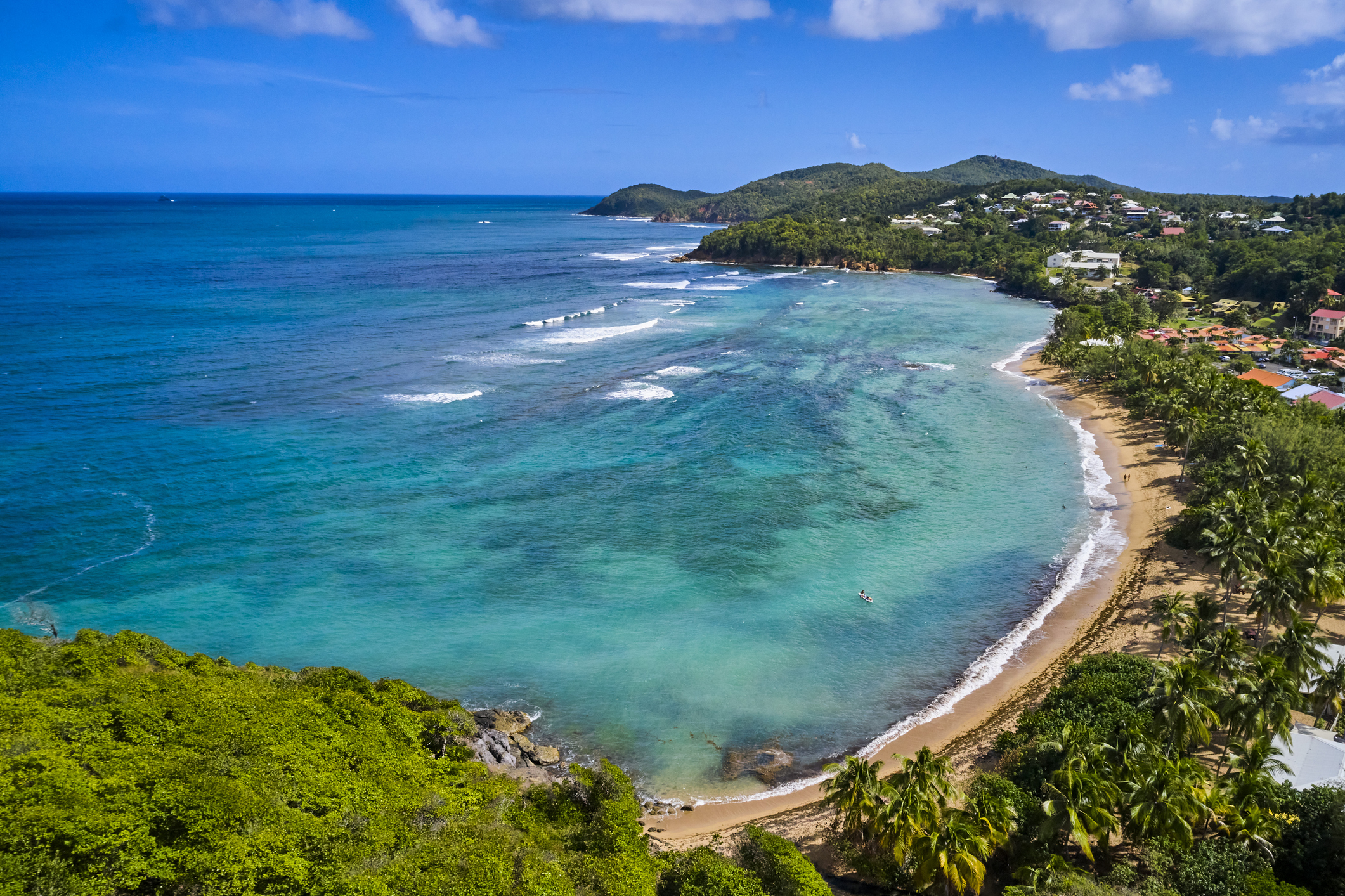In Martinique, a French territory in the Caribbean, tourists flock to crystalline waterfalls nestling in the tropical rainforests. But the water that comes out of Christelle Marie-Sainte’s tap at home runs yellow.
“I don’t drink the tap water,” she said, outside a supermarket where she was buying locally-bottled Lafort water. A relatively low-cost brand, Lafort is double the price of an equivalent product in parts of Paris.
Anger at Martinique’s prices and poor services erupted in months of protests and unrest late last year that saw dozens of businesses targeted and burned. The protests have largely given way to a movement that has won concessions from Paris, including a promise last week of government-backed legislation to tackle grocery prices, which official data shows are on average 40% higher than on the mainland.
Like many contentious issues in Martinique, water is intertwined with questions of class and race, including the prominence of a handful of families descended from white owners of enslaved people.
Known locally as Békés, the white creole families make up about 1% of the population but control swaths of the economy on the island of 350,000 people, the majority of whom are Afro-Caribbean, or descendants of Indian and Chinese indentured labourers.
The government has promised to open up the economy, but activists remain sceptical.
On a visit to Martinique on March 17, Overseas Minister Manuel Valls met with local politicians and business leaders, including Stephane Hayot, son of Martinique’s most successful businessman Bernard Hayot, whose supermarket-to-car dealerships company Groupe Bernard Hayot (GBH) has been a target of protesters’ ire.
Valls called on the businessmen to be more transparent about profits, saying “unfair” supply chains and opacity stifled the economy. He said the government would soon pass a law to fight anti-competitive practices, building on two bills already in parliament.
Activists, some of whom call for independence, say more must be done. They are planning new protests around a trial next week against three protesters.
Valls’ words “need to be followed by concrete, efficient and sustainable action,” said Gwladys Roger, a leader of the movement, Gathering for the Protection of Afro-Caribbean People and Resources (RRPRAC), which has led the protests, where placards with images of water bottles and prices have featured.
GBH recently published consolidated annual accounts for the first time after a lawsuit by activists. In reply to questions from Reuters, Nicolas Assier de Pompignan, a GBH director, said the company published accounts because “times had changed” and there was pressure for transparency. He said there was “healthy competition” in Martinique and that GBH was surprised by Valls’ comments.
The regional government led by Serge Letchimy is drawing up a wide-ranging bill to reduce reliance on imports by giving small farmers access to more land. It also seeks to centralise water management to lower prices and encourage investment, Letchimy’s office said.
“We need significant tax reforms, property reforms,” Letchimy told Reuters.
More than 80% of the food on Martinique is imported, mostly from France.
Farmer Jerrick Venitus rears animals and grows fruit and vegetables for local markets. He called the current system a “colonial pact.”
Almost half the farmland is planted with sugar for rum or bananas for export, a situation encouraged by European subsidies.
The banana, sugarcane and rum industries in 2023 received 161.5 million euros in support, a Reuters tally of French government accounts shows, representing 80% of all agricultural subsidy programs for Martinique. Venitus has yet to receive a 145,000 euro subsidy he applied for three years ago.
“We need to redistribute the cards and prioritise those producing for the local market,” Venitus said, in his banana fields.
Discontent in French overseas territories is not unique to Martinique.
In the Pacific Ocean archipelago New Caledonia, an attempt to reduce the voting weight of indigenous Kanak people brought deadly unrest in May. In December, a cyclone devastated the Indian Ocean archipelago of Mayotte, near East Africa, killing 39 and highlighting poor living conditions.
In response to a request for comment, the French overseas ministry referred Reuters to Valls’ speeches. The Elysee did not respond to a request for comment.
(Reuters)










